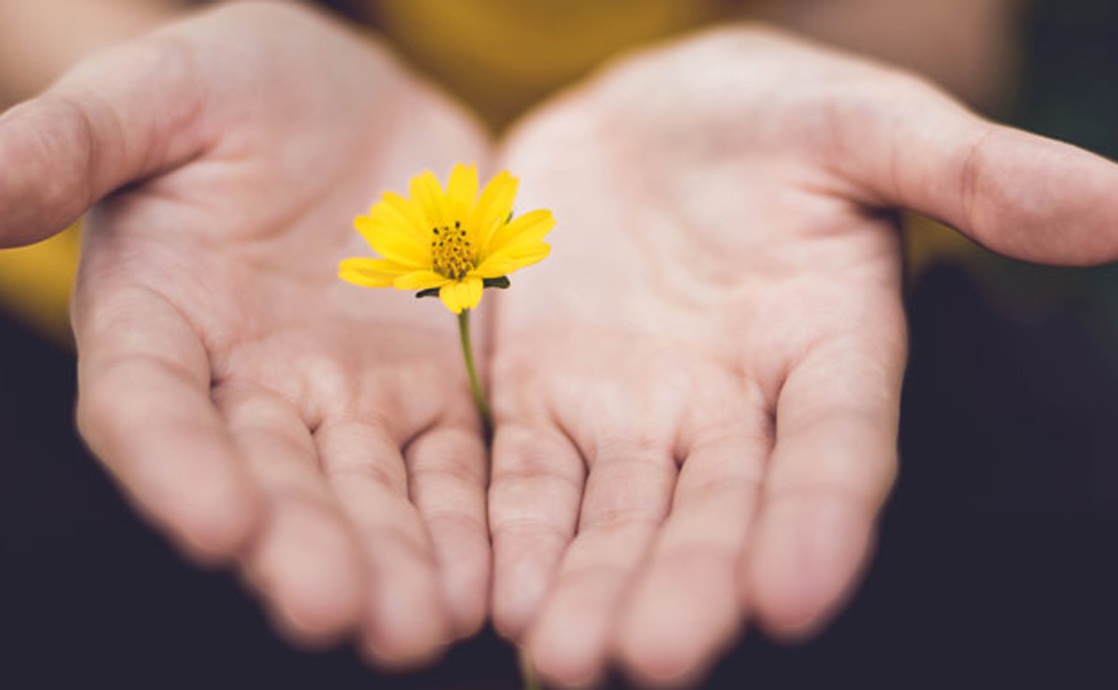The views expressed in our content reflect individual perspectives and do not represent the authoritative views of the Baha'i Faith.
Baha’u’llah, the prophet and founder of the Baha’i Faith, described character, speech and action as “the fruits of the human tree:”
The fruits of the human tree are exquisite, highly desired and dearly cherished. Among them are upright character, virtuous deeds and a goodly utterance.
Oseola McCarty brought to life the essence of this quotation, though she had hardly any schooling and lived modestly in rural Mississippi. Oseola, a faithful, church-going Christian, hardly ever left the area she was born in, yet Bill Clinton, then President of United States of America, invited her for dinner at the White House. She had very few years of education, yet Harvard University gave her an honorary doctoral degree. She hardly watched TV, yet all the major anchors and talk show hosts from national television networks wanted her on their programs. She did not understand or care about sports, yet when introduced at the University of South Mississippi football game, thirty thousand fans cheered wildly for her.
What made her become so sought after and special in the last years of her life? She led a simple existence, unaffected by materialism, yet she was rich in uncommon wisdom, which inspired her to take small steps of monumental value.
Oseola McCarty was born in Wayne County, Mississippi, on March 7, 1908. When Oseola was young, her mother, Lucy, moved to nearby Hattiesburg for a better life. Her mother worked hard to support her daughter. Oseola recalled, “She cooked for Mr. J.S. Garraway, who was Forrest County Circuit Clerk, and she would go to the schoolhouse and sell candy to make money.”
Soon, young Oseola attended Eureka Elementary School. After school hours, she washed and ironed clothes to earn money. She put the money away, and after she had enough, she went to First Mississippi National Bank to deposit it. The teller advised her to put it in a savings account. Since the age of six, saving, to her, became as natural as eating and sleeping. She continued to save regularly.
When Oseola was in sixth grade, her aunt went into the hospital for surgery. After returning from the hospital, she could not walk. As her aunt did not have any children of her own, Oseola offered to take care of her while sacrificing her school studies. Even when the aunt had recuperated fully, Oseola never returned to school; instead, she continued washing and ironing. In those early days, charging about $1.50 a bundle, she paid regular visits to the local bank, putting her savings away. Over the years, the money in her account grew, although the banks changed names and merged.
Slowly, her immediate family grew smaller. Her grandmother died in 1944, her mother in 1964, and her aunt in 1967. Her mother and aunt each left her some money, which she added to her savings. She rarely bought anything for herself, considering even a newspaper subscription as an extravagance. In 1947, her uncle gave her the house where she lived for the rest of her long life.
She didn’t leave the county where she grew up, never owned a car, and walked everywhere she went. Once a week, Oseola pushed a shopping cart to the Big Star market, more than a mile away, to get groceries. She continued washing, ironing, and saving. Oseola loved her work, saying:
“I would go outside and start a fire under my wash pot. Then I would soak, wash, and boil a bundle of clothes. Then I would rub ’em, wrench ’em, rub ’em again, starch ’em, and hang ’em on the line. After I had all of the clean clothes on the line, I would start on the next batch. I’d wash all day, and in the evenin’ I’d iron until 11:00. I loved the work. The bright fire. Wrenching the wet, clean cloth. White shirts shinin’ on the line.” – Philanthropy Magazine Almanac
This extraordinary work ethic, pursued for seven straight decades, beautifully illustrates the Baha’i principle of “Work done in the spirit of service is the highest form of worship.” – Abdu’l-Baha, Divine Philosophy, p. 83. Oseola said “Hard work gives your life meaning. Everyone needs to work hard at somethin’ to feel good about themselves. Every job can be done well and every day has its satisfactions.”
Bank personnel, realizing that Ms. McCarty had accumulated sizeable savings, advised her to put her money into certificates of deposit, conservative mutual funds, and other accounts where it would accumulate interest for her. Oseola, who never married said:
“After my aunt died, I began to think, I didn’t have nobody. I began to think about what to do with what little I had. I wanted to leave some to some cousins and my church. But I had been thinking for a long time … since I was in school … I wanted to give it to the college (the University of Southern Mississippi). They used to not let colored people go out there, but now they do, and I think they should have it.” – Ibid.
In July of 1995, Oseola donated $150,000 to the University of Southern Mississippi. McCarty’s gift established the Oseola McCarty Scholarship to help a needy student receive the education Oseola never had. Many other institutions and individuals heard about her selfless donation and matched it, so several students now attend USM because of her gift.
When a journalist from People Magazine asked Oseola why she didn’t spend her money on herself, she replied “I am spending it on myself.”
Generosity and sacrifice, as exemplified in Oseola’s character, represent two of the main foundations for building the oneness of humanity. Oseola’s gift so inspired Ted Turner, founder of CNN, philanthropist, and businessman, that he gave one billion dollars of his own to the United Nations. These kinds of selfless philanthropists, whether of humble means or great wealth, exemplify the noble human character trait of generosity that the Baha’i Teachings extol:
Be generous in prosperity, and thankful in adversity. Be worthy of the trust of thy neighbor, and look upon him with a bright and friendly face. Be a treasure to the poor, an admonisher to the rich, an answerer to the cry of the needy, a preserver of the sanctity of thy pledge.
Word of Oseola’s act of kindness spread around the country, and she became a celebrity, sought out by politicians, journalists, clergy, media, sports personalities, and academics. Her legacy lives on in youth development programs, scholarships, and parks.
The Baha’i teachings advise all of us to become:
… a dew to the soil of the human heart, an ark on the ocean of knowledge, a sun in the heaven of bounty, a gem on the diadem of wisdom, a shining light in the firmament of thy generation, a fruit upon the tree of humility.
















Comments
Sign in or create an account
Continue with Googleor